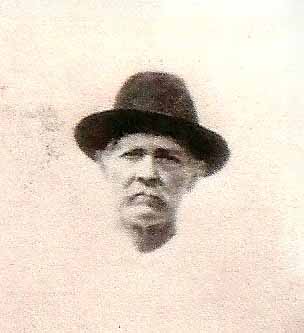from the research of Roxie Milam Wallace
There is a legend that perpetuates in my family, passed on by each new generation. Some legends are true; I don’t know if this one is or not, but I like it. It is a rich legacy I’ve always tried to live up to, and I hope that newer generations than mine are doing the same.
National elections in the United States are critical events in which citizens sometimes become overwrought and irascible in defending and striving to elect their favorite candidates in all levels of government. The presidency is the most important office to be filled, of course, but state and small local contests can generate as much interest, sometimes more, than those that affect large numbers of citizens.
This is especially true in backwoods, rural areas of Tennessee. Tempers often flare out of control during partisan debates among relatives, friends, and neighbors. Doubt and suspicion about character smears and the fair conduct of election officials can change normally civil individuals into rabid mobs. In Middleburg, TN (formerly known as Long’s Post Office where my great-grandmother Kizzie Bennett Milam Long held the position of first post-mistress), emotions ran high during the National Elections of 1924.
As described by Auburn Powers in his “History of Henderson County (1930),” ultra intense feelings led to a dramatic act of violence in which three men were shot. It is that incident which gave birth to this my favorite Milam family legend.
There is a very sad tragedy connected with the history of Middleburg. On the presidential election day, November 4, 1924, D. G. Powers went to the Middleburg precinct to attend the election. He and George Johnson, a Democrat, had been at “outs” with each other. Powers felt that Johnson had treated him unfair in previous cases and that he had been conducting the elections dishonestly. It appears that Powers went to the precinct to “see that things went right.” So, on his arrival at the precinct he saw how things looked and proceeded to take charge of the ballot box. When he did this, “Took” Bartholomew, a Democrat and friend of Johnsons, took it upon himself to get the box. Powers warned him not to bother him, but that did no good. Mr. Bartholomew kept advancing. Again Powers warned him to stop, this time threatening to shoot him full of holes if he did not stop. But again he kept advancing and demanding the box. He had been smoking and had his large pipe in his hand. Powers, on seeing the pipe, thought it was a knife, he claimed, and shot him. As this occurred, “Tooks” son, “Bud”, rushed in. Powers again seeing danger — this time from a new foe — shot “Bud”. Coming from behind him was his old friend, “Bill” Rodgers. Rodgers, it seems, had his hands outspread beseeching Powers to stop. But again Powers saw nothing but danger believing Rodgers an enemy attacking from the rear. So, he whirled and shot Rodgers through the head. After shooting three men in rapid succession and neither of them being his arch enemy, he looked about for some one, Johnson, no doubt. But Johnson, it is said, departed through the back door of the house used for the election and escaped through a corn patch. It was reported that Johnson tore down quite a bit of corn in his flight for safety. Who blames him?
When Powers looked upon the scene, he turned and left. No one followed him. He was believed to be gone within a few hours, but the fact is that he remained in the community for weeks visiting his friends and spending nights with them. After finally leaving home in the night and secretly boarding a train, he roamed over the country at will, usually under the name of “W. B. Coady”. He crossed the border into Mexico, then doubled back across the Southern States and into Cuba. But not being satisfied, he returned home and was taken without resistance. He must have come home to give up. His trial was had at Lexington and he was given a life sentence. He did not serve long, however, before he committed suicide by cutting his throat with a razor. He was buried in the Methodist Cemetery at Scotts Hill, TN …

My grandfather O.C. Milam was the son of Kizzie Long, the aforementioned post mistress. Long Post Office was in existence for only a few years, and when it closed, the community’s name reverted to its original appellation of Middleburg, derived from the fact that it was located midway between Lexington, TN and Decaturville, TN. A location in the neighborhood served as polling place where citizens of Henderson County District 14 gathered to cast their ballots.
O. C. Milam had a long-standing reputation for veracity in the area; most who knew him would tell folks that O.C. never lied. When the violence began during Election Day, Nov. 4, 1924, someone was sent to Lexington, TN to bring the Henderson County Sheriff to the scene. Upon hearing the story, he departed his office immediately, accompanied by a deputy.
Naturally, the law enforcement officers were apprehensive about what they would find at the site and concerned that they should receive a true accounting of events from the drama. Deputy George Stewart is said to have asked the sheriff, “How can we get anyone to tell us the truth about who shot these men? We’ll be considered outsiders; they won’t talk to us.”
T. R. Sisson, the sheriff, replied, “The first person I’m going to question is O.C. Milam. He will tell you the truth about anything!”
Stewart was skeptical, “Milam is related to everybody involved in this—to the whole neighborhood. He won’t accuse his relatives.”
To which the sheriff exclaimed, “O.C. Milam would tell the truth if it was his own mother who did the shooting!